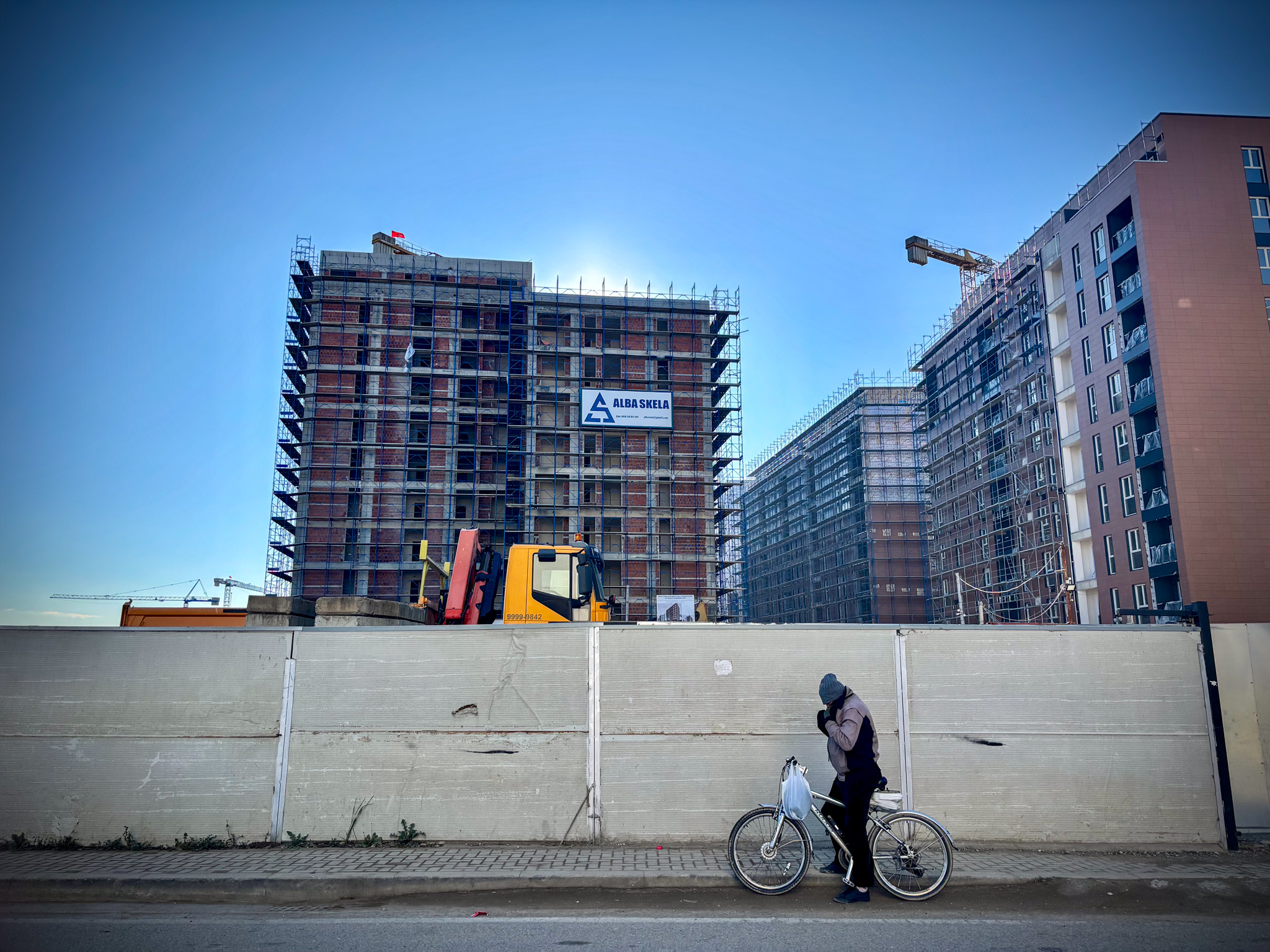North Macedonia, education system in disarray
Among many problems, North Macedonia is trying to reform its education system, adapting it to the challenges of the present. The results, however, at least for now, remain disappointing

Macedonia-del-nord-istruzione-allo-sbaraglio
© Inside Creative House/Shutterstock
Primary school pupils in North Macedonia have been following classes without textbooks for several years. This is one of the major signs of the poor conditions of the education system in the country, as shown by the disastrous results achieved by Macedonian pupils according to the Program for International Student Assessment (PISA 2022). Every day, the government and the minister of Education receive criticism but improvements are not visible. Even the claim to have significantly increased teachers’ salaries clashes with the fact that education workers were on strike for days.
Concept without textbooks
Problems started from the school year 2021/2022, when a new Concept for Primary Education was implemented to move teaching towards in-depth and thoughtful learning based on critical thinking and logical reasoning. “Such learning requires designing and connecting information and solving problems, instead of memorising facts, which, in modern conditions, are not only easily accessible, but also subject to manipulation”, reads the introduction.
However, no new textbooks were issued. Three years later, students still do not have all their textbooks. For the 2023/24 school year, students from the third and sixth grades started without textbooks and the rest lacked those for certain school subjects. Currently, only pupils from first and second grades have all their new textbooks. Even if photocopying is illegal, it is a public secret that teachers are forced to use copies of textbooks and similar teaching material.
The Commission for the Prevention and Protection against Discrimination recorded that – at the beginning of the school year 2023/2024 – out of a total of 126 textbooks required for all compulsory and optional subjects in the nine-year primary education cycle, the Ministry of Education and Culture did not provide 43, i.e. 34%.
The commission found that the Ministry of Education and Culture did not remove the violation of the right to equal access to quality education for primary education students within the set deadline, which was its legal obligation, and therefore filed a lawsuit.
During the annual government conference "Year of European Opportunities", minister of Education and Science Jeton Shaqiri boasted about a new record budget for infrastructural conditions and that, in one year, about 80 school facilities were renovated, while four new ones were built, as well as a school sports hall.
"It is a special honour for me that, in 2023 alone, we increased the salaries of teachers by 18%, and at the same time we provided opportunities for advancement in the title of mentor for about 50 teachers, through a transparent call”, said the minister.
PISA, disappointing results
His words were criticised by the opposition, with a reminder that no progress is achievable when there are no textbooks. According to Vesna Janevska from VMRO DPMNE, the budget for Education is 3.7% of GDP, which is far below the EU average. Regarding the increased salaries, she said that they are far below the level of the consumption basket and lower than the average salary.
“I see no reason why the minister should boast. Our PISA ranking is devastating, we are second worst in the region”, said Vesna Janevska. “They provided new scholarships that students and pupils do not receive for months, and sometimes students who meet the conditions do not receive scholarships. The measures are in the form of pre-election bribery, which created chaos in schools and will only last until the coming elections”.
The results of the 2022 PISA test for 15-year-old students/pupils put North Macedonia among the worst performers in reading, maths and natural sciences.
Out of a total of 81 states, provinces and territories, North Macedonia ranked 62nd in math, 72nd in reading and 69th in science: according to the media, this is a drastic drop compared to the 2018 testing. Compared to the region, the 15-year-olds from the country were only better than their peers in Kosovo and Albania, while they are far behind students from Slovenia and Croatia, who lead in the region.
Fewer and fewer students
In the meantime, the media reported again about the large number of students who moved out together with their families, due to emigration trends. According to the data of the State Statistics Office, at the end of the academic year 2021/2022, the number of students who completed the academic year was 19,012, while in 2012/2013 the number was 22,955.
“It is a serious indicator that the younger population is moving out of the country. And such statistics have been consistent for 10-20 years, both in primary and secondary education”, said for the newspaper Nova Makedonija demographer Doncho Gerasimovski, former director of the Statistics Office.
In primary education, the inclusion process for children with special needs has been going on for several years now, leaving special classes behind. Yet, the media throughout the country warn that there are not enough teaching assistants to help those students. Inclusion also requires more adequate rooms and teaching materials.
In secondary education and in state colleges, the problems relate primarily to the lack of infrastructure. Teaching mostly takes place in two shifts, from 7:30 in the morning until 6:00 p.m. Students also face unfavourable conditions in dilapidated student dormitories, while a large number of faculties are waiting for new facilities to be built.
Tag: Education
North Macedonia, education system in disarray
Among many problems, North Macedonia is trying to reform its education system, adapting it to the challenges of the present. The results, however, at least for now, remain disappointing

Macedonia-del-nord-istruzione-allo-sbaraglio
© Inside Creative House/Shutterstock
Primary school pupils in North Macedonia have been following classes without textbooks for several years. This is one of the major signs of the poor conditions of the education system in the country, as shown by the disastrous results achieved by Macedonian pupils according to the Program for International Student Assessment (PISA 2022). Every day, the government and the minister of Education receive criticism but improvements are not visible. Even the claim to have significantly increased teachers’ salaries clashes with the fact that education workers were on strike for days.
Concept without textbooks
Problems started from the school year 2021/2022, when a new Concept for Primary Education was implemented to move teaching towards in-depth and thoughtful learning based on critical thinking and logical reasoning. “Such learning requires designing and connecting information and solving problems, instead of memorising facts, which, in modern conditions, are not only easily accessible, but also subject to manipulation”, reads the introduction.
However, no new textbooks were issued. Three years later, students still do not have all their textbooks. For the 2023/24 school year, students from the third and sixth grades started without textbooks and the rest lacked those for certain school subjects. Currently, only pupils from first and second grades have all their new textbooks. Even if photocopying is illegal, it is a public secret that teachers are forced to use copies of textbooks and similar teaching material.
The Commission for the Prevention and Protection against Discrimination recorded that – at the beginning of the school year 2023/2024 – out of a total of 126 textbooks required for all compulsory and optional subjects in the nine-year primary education cycle, the Ministry of Education and Culture did not provide 43, i.e. 34%.
The commission found that the Ministry of Education and Culture did not remove the violation of the right to equal access to quality education for primary education students within the set deadline, which was its legal obligation, and therefore filed a lawsuit.
During the annual government conference "Year of European Opportunities", minister of Education and Science Jeton Shaqiri boasted about a new record budget for infrastructural conditions and that, in one year, about 80 school facilities were renovated, while four new ones were built, as well as a school sports hall.
"It is a special honour for me that, in 2023 alone, we increased the salaries of teachers by 18%, and at the same time we provided opportunities for advancement in the title of mentor for about 50 teachers, through a transparent call”, said the minister.
PISA, disappointing results
His words were criticised by the opposition, with a reminder that no progress is achievable when there are no textbooks. According to Vesna Janevska from VMRO DPMNE, the budget for Education is 3.7% of GDP, which is far below the EU average. Regarding the increased salaries, she said that they are far below the level of the consumption basket and lower than the average salary.
“I see no reason why the minister should boast. Our PISA ranking is devastating, we are second worst in the region”, said Vesna Janevska. “They provided new scholarships that students and pupils do not receive for months, and sometimes students who meet the conditions do not receive scholarships. The measures are in the form of pre-election bribery, which created chaos in schools and will only last until the coming elections”.
The results of the 2022 PISA test for 15-year-old students/pupils put North Macedonia among the worst performers in reading, maths and natural sciences.
Out of a total of 81 states, provinces and territories, North Macedonia ranked 62nd in math, 72nd in reading and 69th in science: according to the media, this is a drastic drop compared to the 2018 testing. Compared to the region, the 15-year-olds from the country were only better than their peers in Kosovo and Albania, while they are far behind students from Slovenia and Croatia, who lead in the region.
Fewer and fewer students
In the meantime, the media reported again about the large number of students who moved out together with their families, due to emigration trends. According to the data of the State Statistics Office, at the end of the academic year 2021/2022, the number of students who completed the academic year was 19,012, while in 2012/2013 the number was 22,955.
“It is a serious indicator that the younger population is moving out of the country. And such statistics have been consistent for 10-20 years, both in primary and secondary education”, said for the newspaper Nova Makedonija demographer Doncho Gerasimovski, former director of the Statistics Office.
In primary education, the inclusion process for children with special needs has been going on for several years now, leaving special classes behind. Yet, the media throughout the country warn that there are not enough teaching assistants to help those students. Inclusion also requires more adequate rooms and teaching materials.
In secondary education and in state colleges, the problems relate primarily to the lack of infrastructure. Teaching mostly takes place in two shifts, from 7:30 in the morning until 6:00 p.m. Students also face unfavourable conditions in dilapidated student dormitories, while a large number of faculties are waiting for new facilities to be built.
Tag: Education









